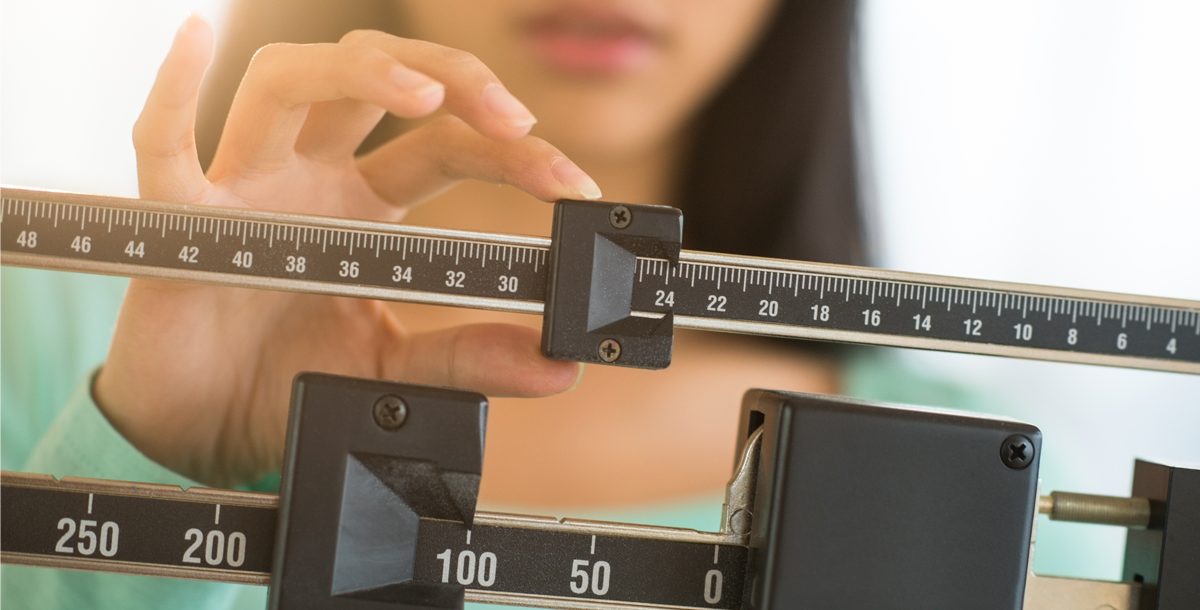Even while following standard advice, we can still find ourselves facing a rising number on the scale. Could your hormones be causing weight gain?
To help address this question, Muhammad Mahmood, M.D., an endocrinologist with Mercy Health, is tackling the complex topic of weight.
Why is it so hard to lose weight?
A big factor in weight gain is the combination of our fast-paced world with quick and easy food options. Dr. Mahmood notes that most people work, and those work schedules give us less time to cook whole-food meals at home.
“We have a lot of ease with the progress of home delivery and fast food,” says Dr. Mahmood.
On a busy day, these can feel like lifesavers. However, many food options that we order can be less healthy and contribute to weight gain.
“Those foods are high in fat and carbs and salt,” he says. “When you add those things, it’s more rewarding—that’s how the brain system works.”
What else can affect my weight?
Hormones, sleep and stress
“According to CDC, 68 percent of U.S. population is obese or overweight. However, hormonal conditions that cause weight gain only account for about 5 percent, so that doesn’t completely explain it,” says Dr. Mahmood. “It’s much more complex than we think it should be.”
Hormones play a role, but big picture, we must look at the underlying cause of those hormone abnormalities. For example, high cortisol levels could be off because of too much alcohol consumption and/or depression.
Poor sleep and stress affect our hormones and can cause weight gain. For women, perimenopause and post menopause often come with changes in weight too.
If you’re interested in determining if a hormonal imbalance might play a role in your weight, you can speak to a primary care doctor, OB-GYN, or an endocrinologist.
False sense of hunger
When you feel hungry, your body may be responding to things other than a need to eat food.
“First, we have to understand what the hunger is,” says Dr. Mahmood. “What we know from studies is symptoms of thirst, hunger and stress can affect us the same way. So, is it really hunger or is it something else happening that makes you want food?”
In order to relieve symptoms of true hunger, you need just 300 calories. This is a helpful rule of thumb when it comes to an afternoon slump or other time when you’re feeling peckish between meals.
“If you eat more than that and you still have feelings of hunger a half hour later, then it might be something else,” says Dr. Mahmood.
Try drinking water if dehydration may be the culprit. If stress is causing false feelings of hunger, try stress management techniques, such as practicing mindfulness. The goal is to only eat when you’re truly hungry.
Is exercise important?
While exercise is good for general health, mood, well-being, and preventing disease, you still need to eat as healthy as possible.
“Working out just won’t compensate for a severe increase in calories,” says. Dr. Mahmood. “I tell my patients that, on average, walking a mile burns 100 calories. Each mile takes around 20 minutes to walk.”
So, to burn 500 calories by walking would require a five mile walk for about an hour and 40 minutes. No one has that much time to burn off that many calories. We are limited in time even when we are in the best of health.
Dr. Mahmood recommends people focus more on what they eat to control weight, and exercising as part of an overall healthy lifestyle.
What foods will help me lose weight?
For most people, choosing the right food is the most effective way to control weight. In addition to eating an appropriate number of calories, there are certain guidelines to follow when choosing healthier foods.
Most of the time, you should eat whole foods. This refers to foods that are unprocessed and unrefined, or processed and refined as little as possible. For example, a chicken breast is less processed than turkey deli meat. Whole grain rice is less processed than pasta. Vegetables and fruits are great sources of whole foods.
“The biggest part is how to avoid processed foods,” says Dr. Mahmood. “When you look at the back of a label and see more than five ingredients, that’s processed.”
To eat whole foods that are minimally processed, you often must cook them yourself. If you’re not confident in the kitchen, consider watching cooking tutorials online or attending a cooking class.
Some foods have been prepared to help cut down on the work you need to do, such as frozen broccoli and canned beans. However, be sure to check the nutrition labels for signs that the food has been processed beyond just cutting and/or freezing.
When to see an endocrinologist
Dr. Mahmood says patients should consider seeing an endocrinologist if they are persistently gaining weight without reason and their primary care evaluation has been normal.
Learn more about the weight loss services offered at Mercy Health.







1 Comment
Post a CommentAmmara
Very informative